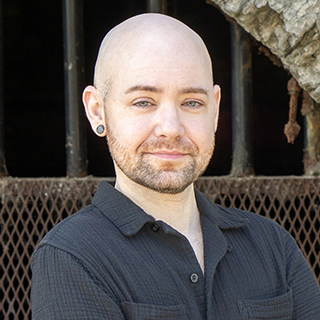Freedom drives all other existential concepts. Existential psychology holds that we are all born into the world with the freedom to shape our path through life. Rather than handing over decisions to religion, family, cultural norms and expectations, or some other external force, existentialism calls on us to choose what we do, and how and when we do it.
Freedom sounds amazing in theory. Who doesn’t want choice and self-determination? But along with freedom comes responsibility—and that can be overwhelming, even terrifying. Existential freedom is about how we cope with the consequences of the choices we make and respond to what life throws at us. (And we have social conditions to contend with, which is why our freedom is always limited, rather than absolute.)
So freedom is challenging in practice. Sure, you can try dating that new person while your existing relationship is in crisis. But you will also be accountable for any emotional consequences. You can choose the safe job over the adventurous opportunity, but you will also need to accept any later regrets without blaming an external force. When you are free, you are responsible for your own choices, no matter how they work out.
That’s why many people, believe it or not, are reluctant to be free. In existential therapy I might have a client who is stuck and can’t make a decision that needs to be made. They frame this as a sort of helplessness, or being trapped by their circumstances. What is really happening here, though, is they’re making a choice through inaction to let whatever external forces are at play decide for them. They are refusing to accept the fact of their own freedom. I used the word “helplessness,” but this way of thinking is actually quite helpful in terms of preventing overwhelm and managing fear.
Denying existential freedom through “necessity”
In How People Change, Allen Wheelis writes of the deep human fear of freedom and change. He talks about our trend toward tension reduction (or, in existential therapy terms, managing anxiety and dread). We accomplish this by building an ultimately false sense of “necessity.”
He wrote, “For some people necessity expands cancerously, every possibility of invention and variation being transformed into inflexible routine until all freedom is eaten away.” He is speaking of the tendency we have to build emotional external constraints and pretend those make decisions for us, rather than accepting our own responsibility. (Find a more in-depth discussion of How People Change on the Marginalian.)
For instance, we all say things like, I “have to_______.” When I probe this question with clients, we often find that more honest statements are “I want to,” “I choose to,” “I am obligated to,” or “I prioritize.” The language “have to” is often an indicator that we are refusing to take up freedom. Bad faith, Sartre’s concept I talked about in an article on authenticity in existential therapy, means to deny our own freedom. I hear that denial in the way people talk about the state of their lives.
Existential therapy is about challenging the ways clients have built necessity that may have provided psychological security, but at the cost of psychological freedom. This is hard for some to even see, because they are so emotionally attached to the idea of security. But they’re also miserable and know they need something to change. For others, they are grappling with the consequences of choices they’ve made and need help accepting responsibility to get out of a cycle of anger, resentment, and blame.
Embracing our freedom doesn’t mean hopping on a plane, boat, or RV to somewhere else whenever we want. Our freedom is constrained by social conditions like capitalism. It does mean facing truth: that our actions are not predetermined, but are choices we make in service of something. Someone may choose a stable job with reliable income because she has taken up the position of breadwinner. But that wasn’t a “have to.” It was a commitment she made or a priority she chose.
Even if we don’t make changes to the structure of our lives, the mindset shift of being able to say “I chose this” can go a long way toward reducing a sense of stuckness or helplessness. This shift creates room for self-acceptance and self-compassion. And more often than not, we find that we have more flexibility than we realized. We can expand the space in our days to pursue joy, even if in small ways. And as Annie Dilliard wrote, “How we spend our days is, of course, how we spend our lives.”

